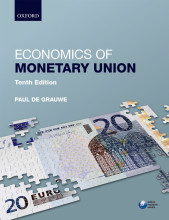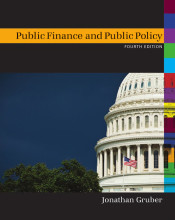Summary: Competition
- This + 400k other summaries
- A unique study and practice tool
- Never study anything twice again
- Get the grades you hope for
- 100% sure, 100% understanding
Read the summary and the most important questions on Competition
-
1 Competition
This is a preview. There are 47 more flashcards available for chapter 1
Show more cards here -
Explain Price Caps. Why unlikely to be optimal?
Does not make use of accounting data. The regulator fixes ceiling prices for either all products or a basket, and the firm can choose its prices at or below the ceilings. PC regulation rules out the use of cost data, unlikely to be optimal. -
In which 3 aspects does PC regulation differ from COS?
1. PC is meant to be prospective rather than retrospective. The firms historical cost is not meant to be the basis for future prices.
2., The firm is granted downward flexibility in its prices
3. Distance between regulatory reviews is meant to be exogenous -
What is the difference between a natural monopoly in the positive and normative sense?
Positive: the prediction that there will only be a single firm in the industry
Normative: an industry where average cost of production is minimized when there is a single producer -
When is a market a natural monopoly? When is this the case?
If the cost function is subadditive, i.e. C(q) < C1(q1) + C2(q2) + ...+
Depends on whether the firm produces a single product or multiple products -
When is a single product firm a natural monopoly?
If the technology of production is characterized by economies of scale over all levels of output -
What is the difference between a strong and weak natural monopoly?
Strong: If economies of scale are not exhausted, Pricing at MC is not profitable
Weak: economies of scale are exhausted, pricing at MC is profitable -
What determines the efficiency losses associated with no regulation?
the extent of market power and the degree of cost inefficiency -
Explain Demsetz idea on auctioning of a monopoly franchise. What is a problem with it?
Competition for the market could arise if the government auctioned off a monopoly franchise contract. The bids by firms would be the price at which they are willing to serve the market, the firm bidding the lowest price wins the monopoly franchise. But, the world is not static. -
What is a key requirement of a market to be contestable?
There are no sunk costs and absolutely free entry -
If a market is contestable and a natural monopoly, regulation might still be required if the monopoly is not sustainable. Sustainable prices have 2 features. Which ones?
1. profits of the incumbent are nonnegative and
2. no incentive for entry at those prices
- Higher grades + faster learning
- Never study anything twice
- 100% sure, 100% understanding































